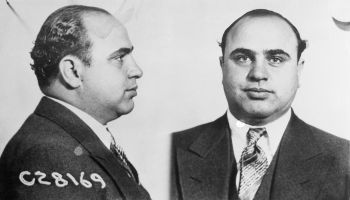VIA NEWSWEEK:
For job seekers, 2010 could be the year to reinvent oneself. Industries such as health care, higher education, and green technology are expanding. Double-digit unemployment is expected to drop, as companies slowly begin to hire in the spring and latter half of 2010, and new digital and technological jobs could start to take shape as Americans re-settle into this emerging, post-recession economy.
How should people go about tweaking or changing their careers? NEWSWEEK’s Nancy Cook recently spoke with Alexandra Levit, career columnist for The Wall Street Journal and author of New Job, New Youabout the future of the job market and the ways in which workers and companies will have to shift to stay competitive. Excerpts:
NEWSWEEK: Why did you write this book at this particular time?
LEVIT: Starting in 2007, I was already hearing a lot about career changers. The 20-somethings didn’t want to pay their dues. You would think, Why would they change careers that they just started? but they wanted meaning right away. I was also starting to hear a lot about baby boomers, who had no intention of sitting in the house and playing bridge once they retired. They wanted to continue working through their senior years and contribute more than they did at their corporate jobs. The recession happened as I was pretty much finished writing the book, and it meant that people across all age groups needed to reinvent themselves. It provided a sense of urgency. People were starting to feel like the corporate world was not the reliable choice that it used to be, and if you’re working in an unstable career, you may as well be working on your own. Changing careers is this big nebulous thing. As I started doing research, I noticed that there were some good books out there but they were very generic. The thing is that how you reinvent yourself differs based on your individual circumstances. It depends on your motivation and whether you want to do it to spend more time with your family or develop a latent talent or whether you want to work on your own.
You profile dozens of people who have successfully switched careers. Were there any traits they had in common?
My favorite trait is persistence; that is the one thing that sets apart people who make a career change. If people are persistent and patient, they can pick themselves up when they have setbacks. If you don’t have that internal drive, reinventing yourself will be very difficult. All of the people I talked to for the book—none of them took the path of least resistance.
I started making my own career change when I knew that I wanted to have a child. I was a senior manager in a communications firm, and I was working 80 hours a week. I started gradually changing my career five years before I had a baby. This topic is personal for me because I know, for one, that I moved things forward a little bit at a time.
You make changing careers sound relatively easy, but what are the downsides?
There are sacrifices. Changing careers is not the kind of thing that makes life easy. It’s much easier to collect the paycheck and go about your life. There can be financial setbacks. It can be tough on your relationships and tough on your free time. The risk is a downside for a lot of people. They wonder, How do I know how successful I’ll be? What if this doesn’t work out and I’m a failure?
Do you think the government should help people reinvent themselves? What federal or state policies would aid people in this transition?
Without getting too political, I would say personal health insurance. It’s what keeps people from making this change. If your company is covering your insurance, you’re not going to leave.
How do you think the job market will shift for those who want to reinvent themselves?
There will be massive changes in 2010. All of the people hanging on to their jobs because they were too scared to move in the recession will take new jobs. The millions of people who are unemployed will start to get hired. We’ll see incredible turnover, and companies will have to start taking care of people again. I think more and more people will be transitioning to careers where they acquire a set of transferable skills rather than expertise in a specific industry. Now, employers tend to say, “I don’t know why you made a move out of telecommunications.” But, on average, the statistics from the Bureau of Labor show that young Americans who are 18 years old will have something like 12 jobs by time they’re in their mid-30s. The portrait of successful people will be those who have a handle on transferrable skills that they’re able to use across a wide variety of industries. People will have to understand how to position themselves that way. It takes more ingenuity and creativity to show what you learned from each job rather than positioning yourself chronologically.
We’ve been talking about how workers will reinvent themselves for the new economy, but what about companies?
Companies will have to be more flexible and step up efforts big time to retain people. There won’t be the idea that you’re not stuck in this job because we’re the best company in this field. Companies will have to invest in people. Training and development is usually the first thing to go in a recession, but it’s what really endears people to their companies. Another thing they’re going to have to do is step up their flexibility. Some companies balk at telecommuting, but men and women are demanding flexibility, especially if you have young children. In the next five to 10 years, the “millennials,” the generation born starting in 1978, will move into prime child-bearing age. They’ll need this flexibility, and companies will have to give it them.
- Algeria: Entertainment, Food, Languages, Places To Visit + More
- Morocco: Entertainment, Food, Languages, Places To Visit + More
- South Sudan: Entertainment, Food, Languages, Places To Visit + More
- Egypt: Entertainment, Food, Languages, Places To Visit + More
- Libya: Entertainment, Food, Languages, Places To Visit + More














